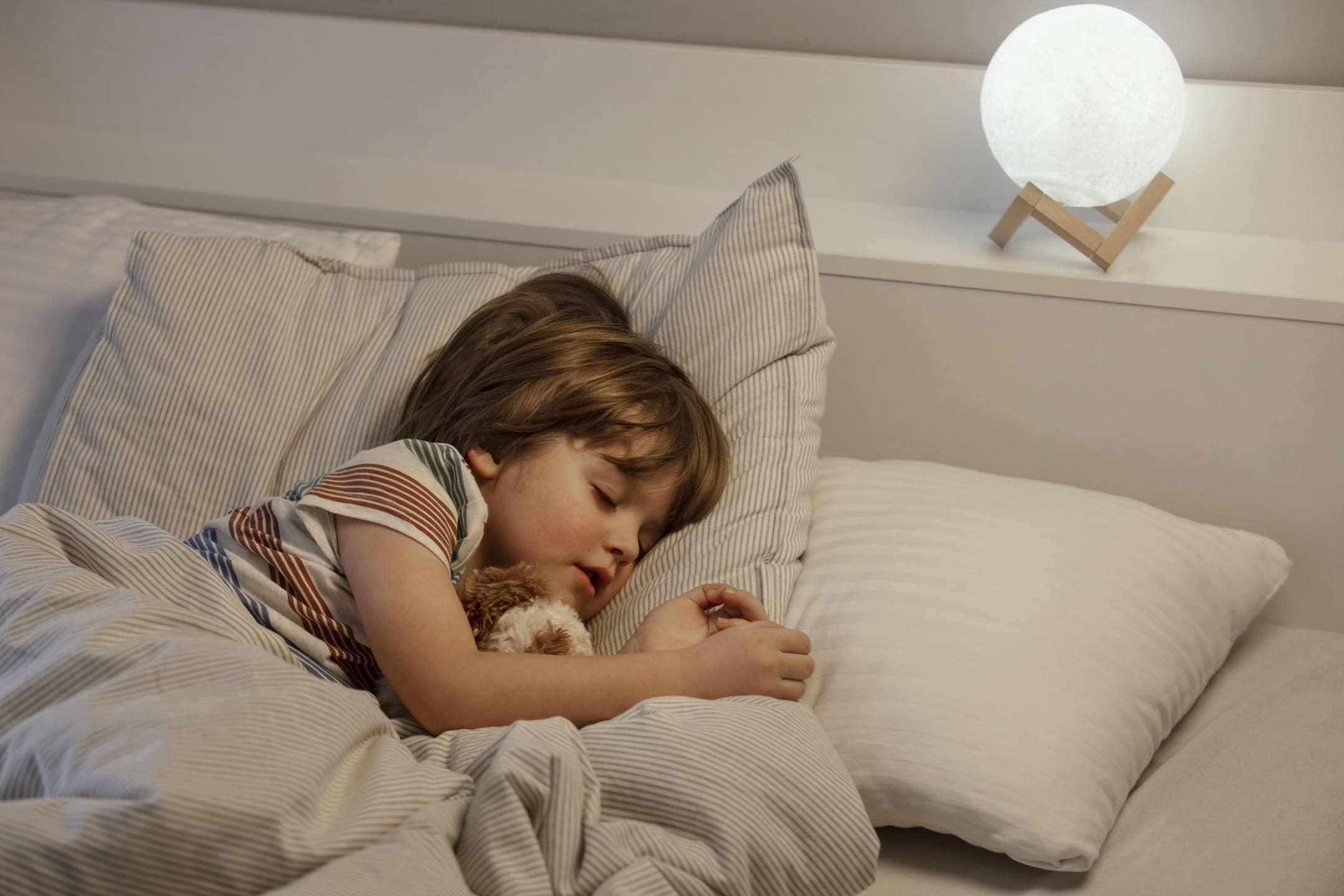
Audrey Trottier, Educator in prevention and health promotion in schools, CISSS de la Côte-Nord
2 m 33 s

Possible results
Possible results of poor lifestyle habits
Difficulty concentrating
Organizational difficulties
Reduced school performance
Mood swings
Changes in behaviour
Memory problems
Increased stress levels
Low self-esteem

Go to bed at a reasonable time to get enough sleep
Establish a routine with regular bedtimes and wake-up times.
Ages 5 to 13
Need 9 to 11 hours of uninterrupted sleep per night
Ages 14 to 17
Need 8 to 10 hours of uninterrupted sleep per night
Avoid video screens 1 hour before going to bed.
Set up a “charging zone” away from the bedrooms. Family members can put their devices there an hour before going to bed.

Advice and tips

Aim for a healthy diet
- Provide a variety of foods based on Canada’s Food Guide.
- Eat 3 meals a day and snacks as needed
- Make breakfast a priority as it ensures the educational success of children. (It helps them pay attention and do better in school)
- Suggest water as the drink of choice
- Encourage listening and following the body’s hunger and fullness cues for healthy eating habits
- Involve your child in menu planning to help develop cooking skills
- Make family meals an enjoyable time
- Avoid distractions while eating (cell phone, television, computer, etc.)
Teach your child to accept his body the way it is

Help your child realize the body’s attributes and capacities that allow him to move, express himself and excel. Here are some ideas to get your child moving:
Ages 5 to 11
- Be active yourself and demonstrate your interest in exercise
- Bond through a family sports activity (basketball, Frisbee, jogging, or organized activities like races, rallies, active challenges, online workouts)
- Set up a schedule for screen time and outside play time
- Get simple materials for outdoor games (chalk, snow and sand shovels, skipping rope, beach ball)
Ages 12 to 17
- Invite one or more friends to join you hiking (picnic on a mountain, hike around a lake)
- Show an interest in your teen’s activities
- Be open to participate with him in an activity he enjoys
- Encourage him to ride a bike when the weather permits
- Commend him for his activities and efforts to keep active
Exercise daily
“You don’t have to be athletic to be active!”
You can help to plan your child’s daily activities.Take every opportunity to be active daily!
Take advantage of active transportation : Walk or cycle to work and use the stairs.
Limit screen time
Also visit the Managing Screen Use page

Be an example
- Evaluate your own use of the internet and screens. Try to improve your habits!
- For screen time, be consistent between what you tell your child and what you do yourself (without aiming to be perfect!)
Set some guidelines
- Limit screen time by setting time limits:
- By age : keep it to a minimum for younger children and set up a daily schedule for older ones
- Depending on the context : work/school obligations or for recreational purposes
- Encourage quality content
- Identify good times for screen time
Talk about it
- Talk to your child in an objective, positive and non-judgmental way. Get him to think
- Take an interest in his online activities
- Talk to other parents about their rules for screen time. Share your concerns and tips!
Listen to your child
- Be consistent and constant in your interactions with your child
- Be flexible by adjusting the rules for each child according to age and needs
- Talk about “online” and “offline” activities rather than “virtual” versus “real world”
- Accept that online friends or experiences can seem “real” to your child
- Don’t use screen time as a punishment (This may increase his desire to be connected)

For more information
Alloprof Parents – How healthy life habits benefit academic performance
Healthy diet : Canada’s food guide
Healthy diet : Mon Équilibre (French only)
Healthy diet : Université de Montréal – Viens manger! (French only)
Sleeping : Alloprof Parents – Tool Better sleep means better grades
Sleeping : Pause your screen – The harmful effects of screens
Sleeping : Promotion de la santé – Dormir, ça sert à quoi? (French only)
Screen use : Pause your screen – Schedule screen-free moments
Physical activity : CSEP Guidelines – Canadian 24-hour movement guidelines for children and youth
Physical activity : Naître et grandir – Physical activity in children of school age
